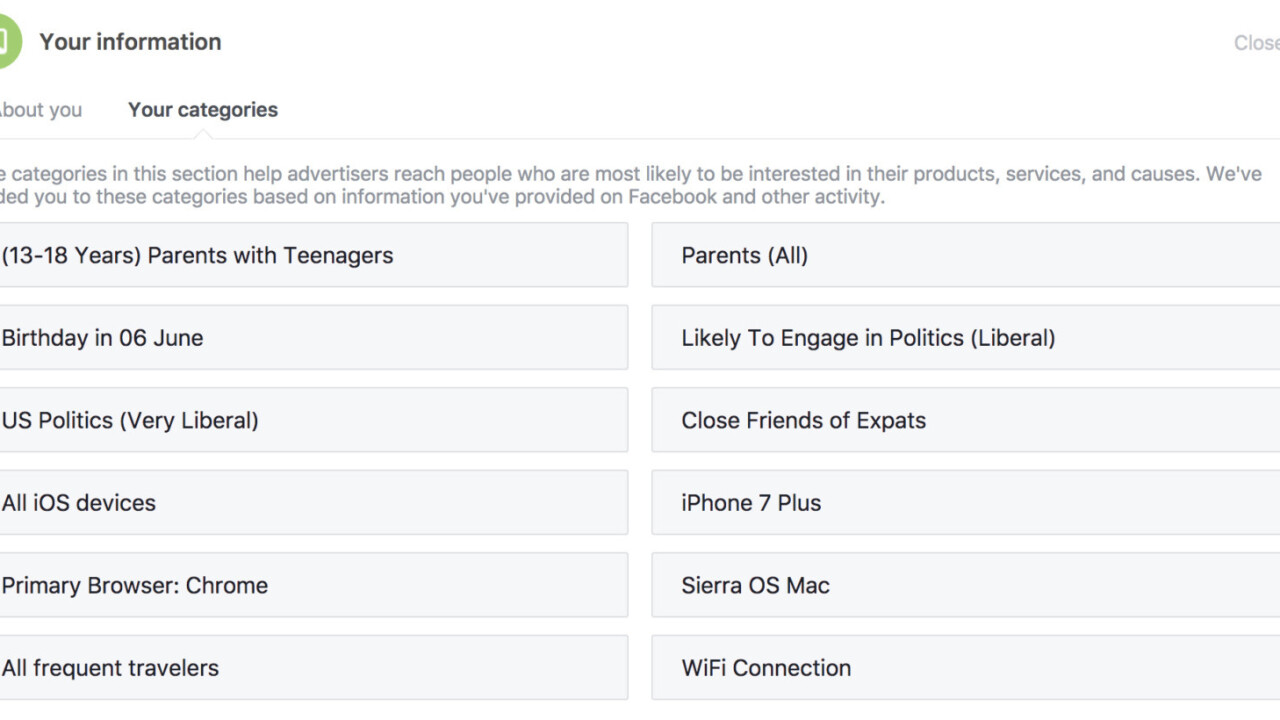
As the saying goes: “if you aren’t being sold, you are the product.” Nowhere is this more true than on Facebook.
The social network boasts nearly two billion users, and offers a staggering amount of free content that keeps most of us engaged hours each day. And in the future, it’s looking to further that effort to keep us on-site even longer, or in other Facebook-owned properties like Messenger, Whatsapp, and Instagram.
The more time Facebook keeps users on the site, the more data it can collect on each of us. This data is what brings advertisers to the platform, and ultimately what puts dollars in Facebook’s coffers. This isn’t lost on Mark Zuckerberg. In order to increase our chances of interacting with ads — thus fueling advertiser demand that keeps Facebook earning revenue — it has to be pretty damn good at placing each of us into neat little boxes.
And it is. This is what those boxes look like.

This is only a fraction of the information Facebook has on me, yet I think it’s more than enough that the average person — having never met me — could do a fair job of describing who I am, and what my interests are. At a glance, you can see what sort of smartphone I use, my primary desktop operating system and browser, travel habits, and even my political leanings. The predictions are made based on pages you’ve liked, status updates, what your friends like, location, career focus, and even how you interact with other accounts or ads — on or off the site — and paint a fairly comprehensive picture of each of us. And this is just the data Facebook’s making public.
It’s sort of amazing, really. Scary too. This is, after all, information each of us give up willingly and don’t think twice about. We fear chance encounters with hackers, but the bigger threat to online privacy, at least in my opinion, are the sites we interact with on a daily basis.
You can check your ad profile here. To see the information that best describes you, click Your Information > Your Categories. It should be relatively accurate. If not, you can delete ad groups you don’t think you belong in. Pro tip: if you think deleting all of them will lead to fewer ads, you’re wrong; it’ll just lead to the ads being more random.
Note: TNW originally published this piece earlier this year. The ad profile area has since been updated, so we felt compelled to share it with you once more.
Get the TNW newsletter
Get the most important tech news in your inbox each week.




